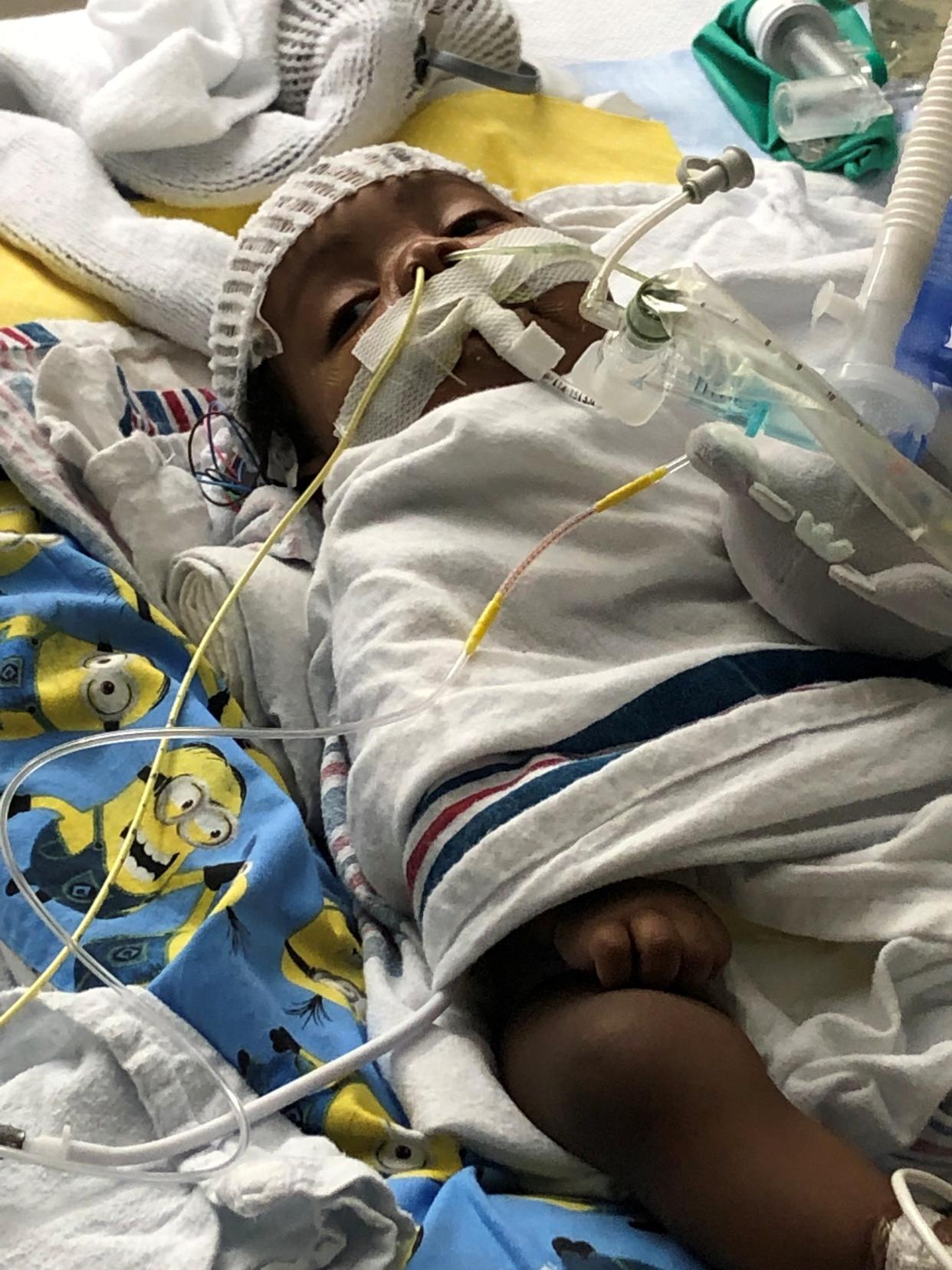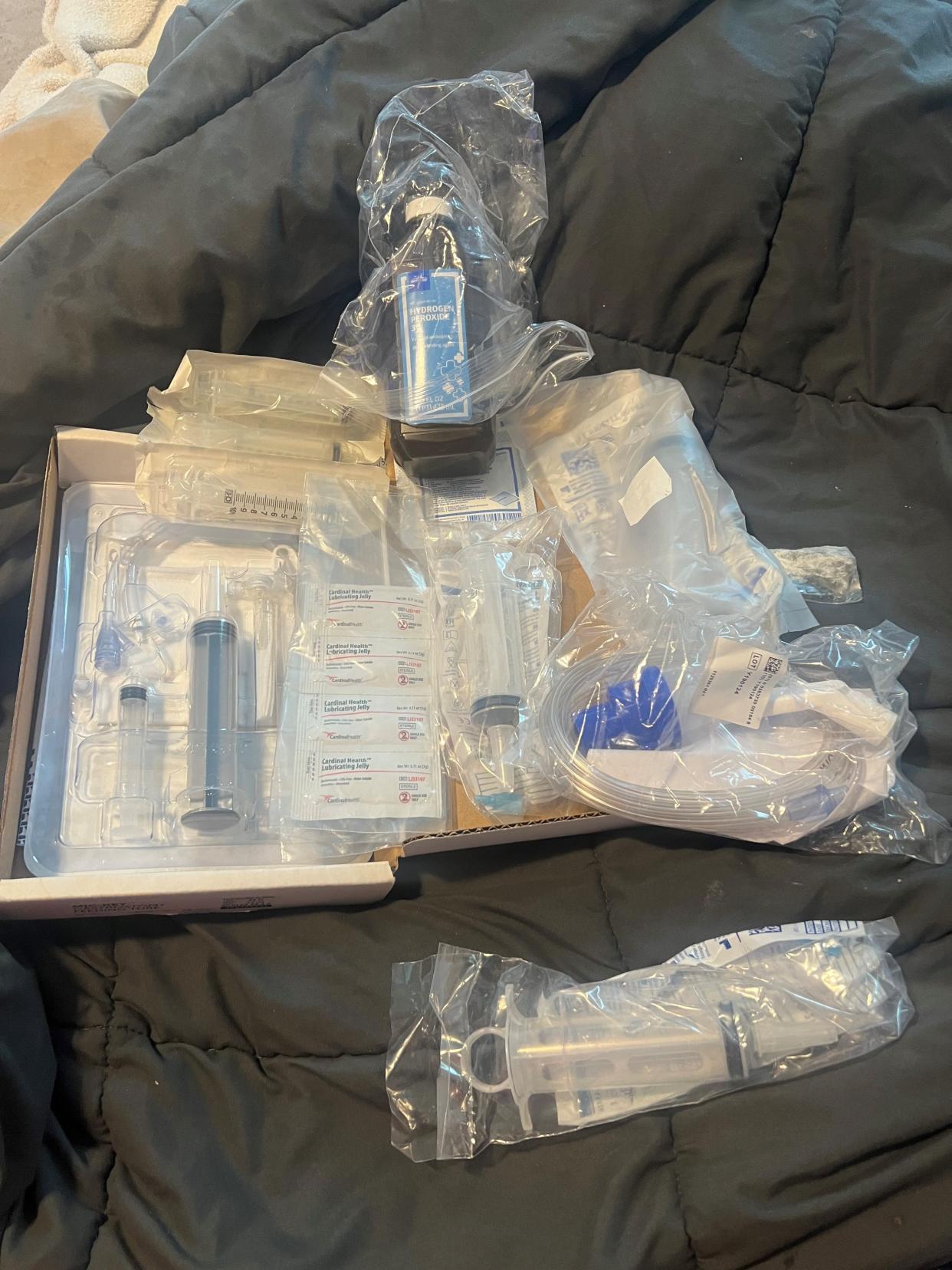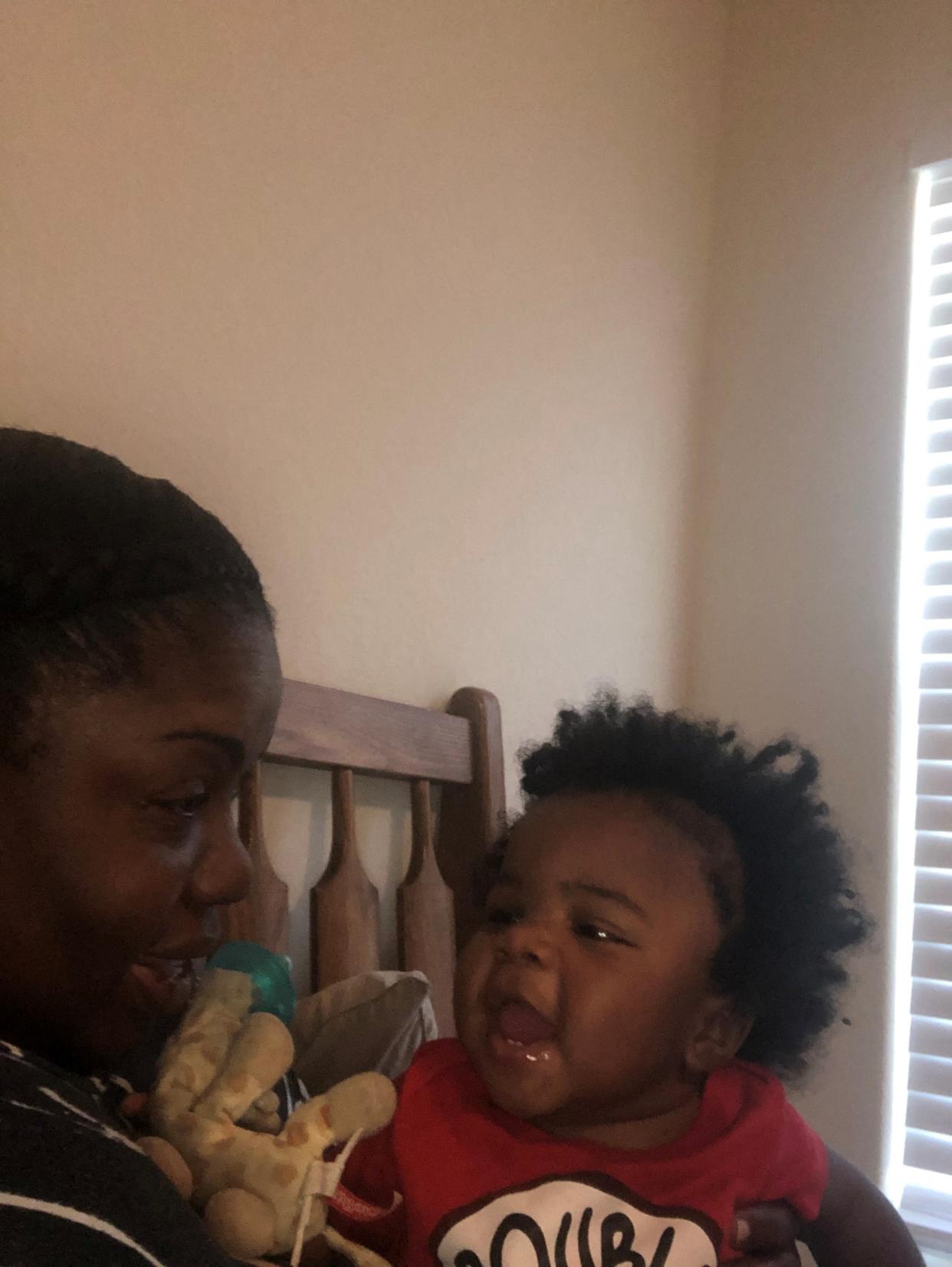'The system failed him': Toddler's grieving aunt speaks out
The Department of Family and Protective Services closed toddler Dairess Fuller Jr.'s case. He died eight months later of malnutrition.
Questions about the state's handling of her nephew's case torment his aunt.
"The system failed him," LaMeka Lowe said.
Dairess Fuller Jr. died at the age of 22 months from homicide due to malnutrition, but he had previously been in the Texas Department of Family and Protective Services system.
Why was he discharged from the system? How did his death happen so soon after being discharged?

His aunt, LaMeka Lowe, feels it is time to speak out against the system because Fuller's mother is serving a life sentence for her part in Fuller's untimely death. Lowe shared her story in hopes this does not happen again to another child.
Not the first time
This is not the first time CPS has been in hot water here in Abilene. In 2012, another 22-month-old died, Tamryn Klapheke, in the family home on Dyess Air Force Base.
CPS worker Gretchen Denny was found guilty of tampering with evidence while the state filed a motion to drop charges against former CPS supervisor Martha "Bit" Whitaker.
The mother of the child, Tiffany Klapheke, was found guilty of injury to a child and was sentenced to 30 years behind bars.
To see a timeline of the events surrounding this case, see previous Reporter-News coverage here.
Positive for multiple drugs
After LaMeka Lowe had just met her half-sister, Teliea Thomas, in July of 2018, Thomas asked her in October if Lowe was willing to take Thomas' three children into her home. The girls, 2 and 4 at the time, had just tested positive for drugs, including methamphetamine, cocaine and marijuana.
According to Lowe, her nephew, Dairess Fuller Jr., was born premature in July with drugs in his umbilical cord.
Lowe and her husband of 19 years, Terrel Lowe Sr, welcomed the children into their home, but right away, they noticed something was wrong with Fuller. The child's "breathing sounded like a grown man that had been smoking his entire life."
'Required 24-hour care'
According to court documents, Lowe quickly sought medical care for Fuller, who was then diagnosed with subglottic stenosis and received a G-tube to assist with feeding. He required 24-hour care with nurses residing in the home to help.

Fuller was also referred to speech, occupational and physical therapy services.
While Lowe cared for the children, her "main goal was to get her (Thomas) situated to take care of her kids," Lowe said. Eventually, she allowed Thomas to move into her home to accomplish that goal.
The family then got a job for Thomas and also purchased her a car. They sent the father of the children, Dairess Fuller Sr., money so he could complete drug courses and get his life back on track.
In the meantime, Fuller Jr. began putting on weight and progressing as he attended regular medical appointments and therapy sessions.
He still required a feeding tube, however, because of continuing swallowing issues, but was overall a happy and healthy baby, Lowe said.
'Verbalized several times that she was not ready'
In September of 2019, however, while Lowe was out of the house, one of Fuller's nurses called and told her Thomas "had left with the kids" and gone back to Abilene without a large portion of his medical supplies.

The following day, Thomas appeared in court, and apparently said that Lowe could not be present although Lowe had never heard about the hearing at all.
Lowe said she didn't know why Thomas was able to get custody of the kids, as she "had verbalized several times that she (Thomas) was not ready" to the caseworker.
CPS never communicated details of the custody hearing with Lowe. Instead she found out from Thomas herself that Thomas had been granted custody.
Court documents show that shortly after Fuller was taken to Abilene, he attended one medical appointment and one therapy session where doctors had recommended continuing services.
Thomas, however, requested a discharge, citing COVID-19 concerns and issues with her pregnancy.
'The system failed him'
When Lowe followed up with Fuller's caseworker, she was told that CPS would follow up with Fuller for six months. According to Lowe, there was only one home visit, and Fuller died before the six months was up.
Lowe believes that as a result, "The system failed him."
In the follow-up investigation, the medical examiner determined the cause of Fuller's death was "homicide due to malnutrition." He was in his mother's care for only a matter of months.
'Risk reduced in the family?'
According to the DFPS handbook, a CPS case can be closed only if final risk reassessment reveals that either risk is reduced in the family, or services are deemed "inappropriate."
If Fuller still required round the clock care and a feeding tube, had risk been reduced?
According to Lowe, Thomas had left behind piles of Fuller's medical equipment, but still Fuller's case was closed.
The DFPS handbook further states that a case worker must complete a "Closing Summary" to close a case. One of those questions that must be answered is, "What do service providers, family members, and any other safety network members report regarding the family’s progress?"

Lowe said she was never contacted to answer this question.
'No risks were identified that required mitigation'
According to the child fatality report released by DFPS to The Reporter-News, Fuller's conservatorship dates spanned from Aug. 21, 2018, to Sept. 19, 2019. During that time, he was placed under the care of his aunt.
The report goes on to say that CPS "had been dismissed as the legal guardian on 9/18/2019, after a successful reunification with the deceased child's mother."
Why was guardianship given so quickly after Thomas returned to Abilene?
On that same report from Sept. 18, 2019, it says that contact with family "indicated all needs were being met."
So, one day at home indicates that all needs were met?
The investigation into medical neglect was subsequently "administratively closed as the department lacked authority to investigate due to the allegations not meeting the definition of neglect."
Also, apparently "safety and risk assessments were not required," and "no risks were identified that required mitigation."
Yet just four days later, DFPS received notification that on Sept. 23, 2019, Thomas "cancelled the nursing care required for the deceased child (Fuller) due to having a g-tube that required feeding and changing."
Why did no one look into this cancellation of services that Fuller required?
Later in the report, DFPS said that on "5/22/2020: the safety assessment was unsafe; this was the only safety assessment completed in the case."
Why was there only one safety assessment taken, and only on the day of his death?
Judge denies request to unseal the case
Many questions were left unanswered after this CPS case was closed, but it appears that the court's hands may have been tied.
According to Assistant Criminal District Attorney Sammi Jo Magee, CPS has one year before cases are automatically closed, and the state's conservatorship reverts back to the birth parents unless limited exceptions apply.
Exceptions can include changes to the trial schedule, if "a parent of a child has made a good faith effort to successfully complete the service plan but needs additional time," or other such instances, according to the Texas Family Code.
The court may retain jurisdiction, however, "and not dismiss the suit or render a final order" if the court "finds that retaining jurisdiction under this section is in the best interest of the child."
So why didn't the court rule to keep conservatorship of the children with Lowe? Why did the court rule in Thomas' favor?
In order to answer these questions, The Reporter-News filed a request to unseal the court case surrounding Dairess Fuller Jr. with the Lowe family's blessing.
Within hours of the request, 326th District Judge Paul R. Rotenberry had denied the request without further reasoning.
It remains to be seen if the Lowe family will ever learn why Teliea Thomas received full custody of her children, including Dairess Fuller Jr., which led to his untimely death, ruled "homicide by malnutrition."
The mother sentenced to life in prison. Sentenced: Abilene mother guilty of starving her child to death
More from the court's perspective. A day in the life: Taylor County District Attorney's Office investigator
This article originally appeared on Abilene Reporter-News: 'The system failed him:' grieving aunt speaks out
